


The Override Clause—Canada and Israel
Written By: Prof. Tsvi Kahana
Democracies ensrhine onstitutional rights, and give the court the power to protect them, out of concern that the legislator may act rashly, or even tyrannically - so then why should we "override" the court's authority - when we have no other constraints
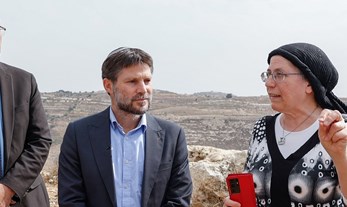
Disbanding of the Religious Zionism Faction
Written By: Dr. Assaf Shapira
Joint lists that fall apart quickly often do more harm than good, heightening political divisiveness and instability

Precautionary Savings – It's High Time
Written By: Prof. Karnit Flug, Prof. Eugene Kandel
The majority of the population in Israel lacks significant precautionary savings and thus are not capable of dealing with Mega-Macro Shocks - mandatory precautionary savings should be put in place for all citizens for use during such a crisis.
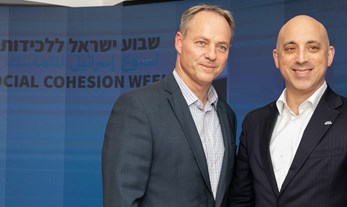
Mamlakhtiyut in Israeli Society and Politics
The conference focused on questions pertaining to the Ben Gurion-inspired concept of Mamlakhtiyut (“Statism”) and how its values can be fostered and made relevant to the current realities in Israel today. The conference, organized by IDI and ADL was part of the Anti-Defamation League’s (ADL) Israel Week for Social Solidarity and coincided with the publication of IDI’s Mamlakhtiyut in the Twenty-First Century.
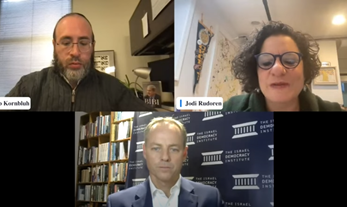
IDI - 2022 Israeli Elections Debrief
After five elections and several years of instability, Benjamin Netanyahu will soon be Israel’s prime ministership once again, backed by the most conservative coalition in the state’s history, with two far-right parties in his cabinet. What are the implications be for Israel’s judicial system, conflict with the Palestinians, international standing and relationship with the United States?
Yohanan Plesner, president of the Israel Democracy Institute, and Jacob Kornbluh, the Forward’s senior political correspondent, in conversation with Editor-in-Chief Jodi Rudoren to parse the election results and share behind-the-scenes insights about what the next government portends.

A Preview of the 25th Knesset
Written By: Prof. Ofer Kenig
Fourteen days after the election, the 25th Knesset will be sworn in. This is the fifth Knesset inauguration in less than 3½ years—testimony to the political crisis which Israel is undergoing. How many new MKs are there? Will the stagnation in female representation continue? How many MKs have a background in local government?

The Real Revolution is Information Chaos
Written By: Dr. Tehilla Shwartz Altshuler
Is journalism still the cement holding democracy together?

The End of the Masquerade
Written By: Eliyahu Berkovits
Will the ultra-Orthodox break with tradition in the next government, by serving as ministers – or will they continue to the masquerade of serving as deputy ministers with status of ministers? Probably not – but they should.

Farewell Elections, Hello 37th Government
Written By: Prof. Ofer Kenig
The elections for the 25th Knesset assembly produced a clear result. Israel’s citizens have had their say, and the political system is now entering the next stage of the cycle: forming a new government. Over the coming days, President Herzog will consult with the representatives of the factions elected to the Knesset, and will decide whom to entrust with the task of forming a government. This will begin the process that will culminate in the swearing-in of Israel’s 37th government. What are the rules that govern this process, and what can we learn from past experience in Israel and in other countries?

The Override Clause Explainer
Written By: Dr. Amir Fuchs
Turning court rulings into a “recommendation” that the Knesset could override, is likely to exacerbate tensions that already exists between the Supreme Court and the Knesset.
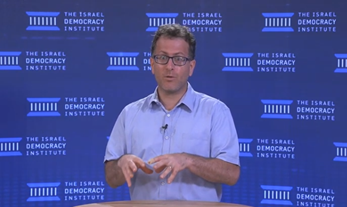
Election Results - How Are Votes Translated to Knesset Seats?
Despite a clear majority of seats in the Knesset for Netanyahu and his right-wing coalition, the number of votes cast in the 2022 elections in Israel was almost equal between the factions. How is this possible?
Israel's electoral process is one of proportional representation and includes a 3.25% threshold. Find out what role this played in determining election results and how it differs from the American electoral college system.
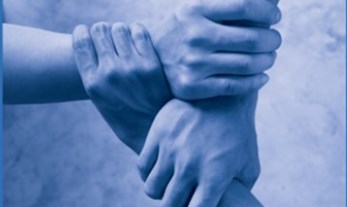
A Consensual Approach to the Separation of Powers
Written By: Dr. Guy Lurie, Dr. Amir Fuchs, Dr. Chen Friedberg, Dr. Assaf Shapira
The debate in Israel over the proper interrelationship among the three branches of government has become heated in recent years. IDI holds that any discussion of separation of powers should focus on functional boundaries among the branches, and on their mutual capacities for oversight. The following paper presents a series of proposals for addressing these issues and strengthening the separation of powers.
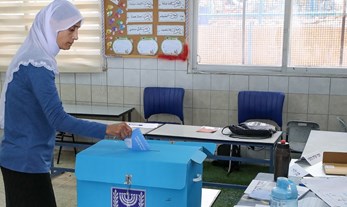
Arab Votes in the 2022 Election
Written By: Dr. Arik Rudnitzky
Dr. Arik Rudnitzky breaks down the Arab vote to the 25th Knesset elections – it seems that Ra’am's gamble paid off and they emerged the big winner.
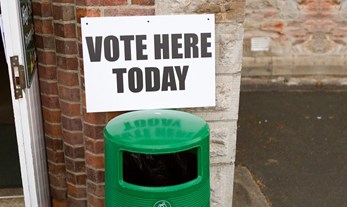
Wasted Votes, the Electoral Threshold, and the Relationship between Them
Written By: Dr. Assaf Shapira
From a comparative perspective, the electoral threshold in Israel (3.25%) seems perfectly reasonable. In the vast majority of democracies, this figure ranges from 2% to 5%. Every percent plus or minus comes with its own advantages and disadvantages. When the threshold is higher, there is a greater danger that votes will go to waste. This is what just happened in Israel, where the lists that came up short of the threshold now find themselves out of the Knesset. But this is not predestined: whether parties clear the threshold or not, depends on their use of their political intelligence.

The 2022 Elections: Results Analysis
Written By: Prof. Ofer Kenig
After five elections in less than four years – Israel is on its way to political stability. Although the number of voters since 2021 didn’t change dramatically – almost 9% of the votes were wasted below the electoral threshold – how does this affect the makeup of the new Knesset? In addition the 2022 elections resulted in a clear victory for former Prime Minister Netanyahu, even though voters were split on whether they wanted him back in office. Prof. Kenig explains.

2022 Election Results
Written By: Prof. Ofer Kenig
The 2022 elections resulted in a clear victory for former Prime Minister Netanyahu, even though voters were split on whether they wanted him back in office. Prof. Kenig explains.

Will the Election Results Hinge on the Double-Envelope Ballots?
Written By: Dr. Or Anabi, Prof. Ofer Kenig
Does the past predict the future? Sometimes yes, sometimes no. What we can expect is stability in the number of double-envelope ballots, which will have a negligible impact on the distribution of Knesset seats between the blocs, unless they push some list below the threshold.

Vote-Sharing Agreements
Written By: Dr. Assaf Shapira
What it is the significance of “vote-sharing agreements,” how is it decided which of the parties that signed a vote-sharing agreement gains an additional seat, and what happens if one of the parties does not pass the electoral threshold? The answers to all these questions are provided in this overview.

The Destruction of the Rule of Law
Written By: Dr. Guy Lurie
The proposal to abolish the Judicial Selections Committee would lead to politicization of the judiciary, undermine judges’ independence, and shift the careful balance reached through it between the branches of government.
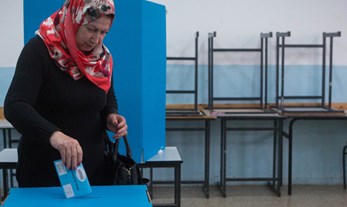
Arab Society: Special Election Survey
Written By: Prof. Tamar Hermann, Dr. Muhammed Khalaily, Dr. Or Anabi
The Arab vote will be key to determining the outcome of the 2022 election. A special pre-election survey takes the pulse of Arab Israelis.

39% of Israelis Do Not Trust the Purity of the Knesset Elections
Written By: Prof. Tamar Hermann, Dr. Or Anabi
The Israeli Voice Index finds that while 56% of Israelis expressed trust in the upcoming election, 39% said they question if the results “precisely reflect how the public voted.”

Been Elected? Deal with It!
Written By: Dr. Assaf Shapira
With less than a month to go to Israel’s fifth elections in three and a half years, it is clear that governmental instability has wreaked huge damage. The work of the Knesset and of the government has suffered, as Knesset members and ministers are constantly operating in a campaign mode. The rules of the game that are generating this instability must be addressed carefully and based on a broad consensus.

Arab Politics in the 2022 Election Campaign
Written By: Dr. Arik Rudnitzky
Will the Arab public’s belief in Knesset elections in general, and in the Arab political lists in particular, will be strengthened. The Arab voter may overcome unjust policies by the government, but not internal crises. Dr. Rudnitzky reviews the main political and ideological streams in Arab society in Israel, ahead of the November 2022 elections

Q&A on the Maritime Border Agreement Between Israel and Lebanon
Written By: Prof. Yuval Shany
Israel's Security Cabinet is set to vote on a maritime agreement with Lebanon, but with the elections coming up, can an outgoing government sign such a deal and does it have to be ratified by the Knesset or by referendum?
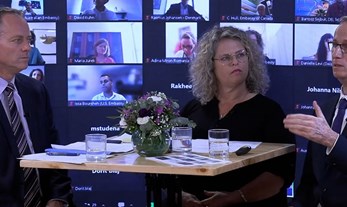
IDI Diplomatic Briefing – Elections 2022
Written By: Yohanan Plesner , Dr. Arik Rudnitzky
Diplomatic briefing with IDI President Yohanan Plesner and Researcher Dr. Arik Rudnitzky on Israel’s fifth national elections in less than four years. The briefing focused on the electoral crisis, the state of Israeli democracy as well as the latest developments regarding the political parties and voting patterns of Arab Israelis.

IDI Convenes First-Time Voters for Pre-Election Conference
IDI and the Yigal Allon Center held a special election conference for over 1,200 students from pre-army gap year programs. The conference provided an opportunity for leaders from across the political spectrum to address the issues young Israelis say are most important to them including the high cost of living and matters of religion and state.

Ukraine and Our Nuclear Future
Written By: Dr. Jesse Ferris
In the decades since the end of the Cold War, regional nuclear powers are adopting strategic doctrines that revolve around the first use of nuclear weapons. This should be particularly worrying for Middle Easterners contemplating their own nuclear future.

The Cost of Living in Israel: What do the Numbers Say?
Written By: Prof. Karnit Flug, Nadav Porat Hirsh, Roe Kenneth Portal
Over the past decade average real wage of Israeli workers increased by 25% - nevertheless their purchasing power is relatively lower than the OECD average

Giving up on the Core Curriculum? Just Wait for the Big Bang!
Written By: Eliyahu Berkovits
The demographic explosion of the ultra-Orthodox sector will no doubt lead the two partners in United Torah Judaism to divorce. When that happens, the minorities including the “New Haredim,” will wield greater power and demand that their children have a future in the working world.

On the Eve of the Jewish New Year: How Optimistic Are Israelis and What Are Their Opinions on Iran and the Two-State Solution?
Written By: Prof. Tamar Hermann, Dr. Or Anabi
Only 32% of Jewish Israelis support advancing a ‘two-state’ solution as a means for resolving the conflict with the Palestinians. When it comes to thwarting the possibility of a nuclear-armed Iran, half of the public thinks Israel can attack Iran’s nuclear facilities even without American agreement.

